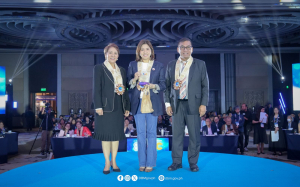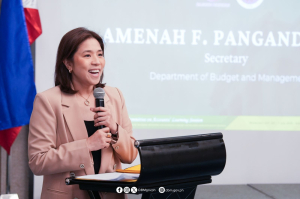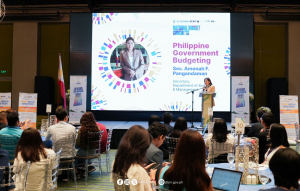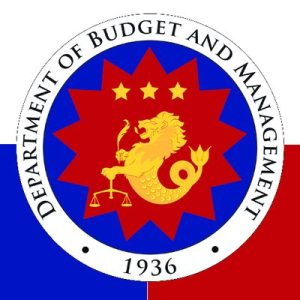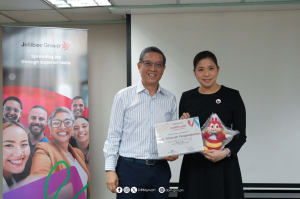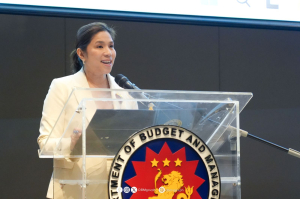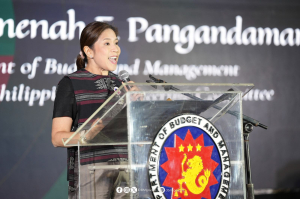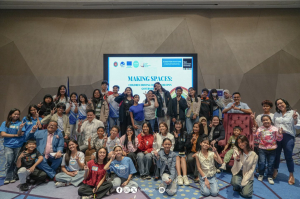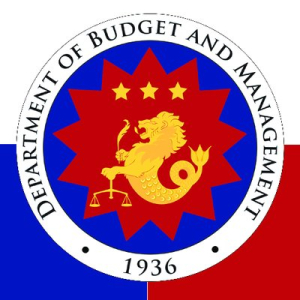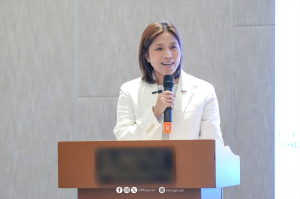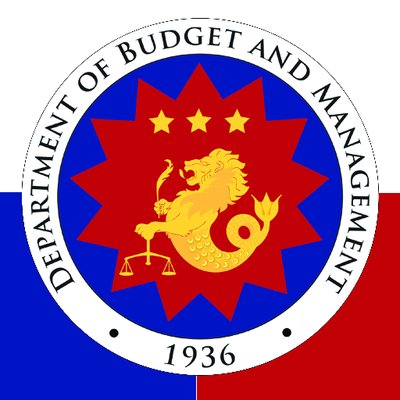
- Details
A pleasant day to the Director General of the Anti-Red Tape Authority, Secretary Ernesto Perez, as well as to our fellow officials and public servants from the government, embassies, and other partner agencies.
Assalamu alaikum wa Raḥmatullahi wa Barakatuh.
First of all, I would like to take this opportunity to commend the Anti-Red Tape Authority (ARTA) for its unceasing commitment, since its inception in 2018, to improve the efficiency and quality of our work in the government. The work you have been doing enables the bureaucracy to overcome future challenges, and to realize our goal for efficient delivery of quality public service that every Filipino desires and deserves.
The DBM is one with ARTA and your vision of “a Philippine Government that is clean, just, highly efficient, technology-enabled and people-centered which enables a high-trust society with a globally competitive service and business environment.” So allow me to share our efforts to enhance our processes and embody bureaucratic efficiency and fiscal transparency with the aid of digital technology.
First, we are reinforcing the Philippine Open Government Partnership or the PH-OGP which provides an avenue for genuine citizen participation in government processes. We are set to institutionalize it through an Executive Order that will ensure a whole-of-government approach to establishing collaboration between government and non-government actors.
Moreover, we will continue the timely and online publication of key budget documents, which include the People’s Budget series, to support informed public debate on the national budget. This will also help us maintain our lead in Southeast Asia in terms of fiscal transparency and public participation as determined through the bi-annual Open Budget Survey conducted by the International Budget Partnership.
We are also championing the passage of the Progressive Budgeting for Better and Modernized Bill or the PBBM Governance Bill. Among its key provisions are the implementation of participatory budget mechanisms to ensure meaningful citizen engagement, as well as the establishment of an Integrated Financial Management Information System (IFMIS).
An integral part of the IFMIS is the Budget and Treasury Management System (BTMS), a key digitalization measure that will enable real-time mapping of transactions from purchase to payment, facilitate the generation of vital information on government financial transactions, and enhance data governance and oversight control.
On top of all these, we are gearing up for the launch of the DBM Digital Transformation Roadmap, which aims to facilitate faster release of data needed for government transactions, reduce government expenses for manual transactions, promote fiscal transparency, and most of all, prevent red tape.
These are just some of our efforts contributing to the realization of ARTA’s mission to “transform the way the Government serves and enables its Citizens and Stakeholders through good regulatory practices, streamlining and re-engineering of processes, collaboration, and application of technology.”
We acknowledge that the road ahead is paved with challenges and gaps; however, we bank on our strong partnerships and our synchronous goal to lead and serve the people with utmost dedication, integrity, and accountability. Together, let us make our vision of a clean, efficient, and conscientious government a reality.
Congratulations, ARTA, on your 5th Anniversary and for your success in building the foundations for good governance.
Mabuhay kayo at ang bawat Pilipino!
Wabillahi Tawfiq Wal Hidaya, Wasalamu alaikum wa rahmatullahi wa Barakatuhu.

- Details

My heartfelt greetings and warmest welcome to our fellow champions of open government and good governance!
Assalamu alaikum wa Raḥmatullahi wa Barakatuh.
First, I would like to thank the Philippine Open Government Partnership (PH-OGP) Secretariat, headed by our very own DBM Assistant Secretary Rolando U. Toledo; PH-OGP Steering Committee Members; representatives from the Independent Reporting Mechanism (IRM); government reformers; former commitment holders; youth leaders; and civil society advocates for joining us in this endeavor and making the 2023 Open Gov Week a success.
Your enthusiasm and active participation in activities such as this are incontestable proof that we have a lot of partners and allies in advocating for a more open government and enriching our democracy.
For this year’s Open Gov Week, we have a roster of activities to gear up for the 2023 OGP Global Summit in Estonia. Yesterday, we conducted a planning session for the development of our 6th National Action Plan—the country’s first medium-term open government action plan—where we discussed and designed our co-creation approach with new and relevant stakeholders. This morning, we will highlight the contributions and accomplishments of the PH-OGP in bolstering spaces for public participation in governance processes and learn more about how PH-OGP intends to leverage strong co-creation mechanisms and digital technology moving forward. This afternoon, we will also recognize our Project Open Government Youth Champions and feature their respective Action Plans in promoting transparency, accountability, and participation in local youth governance systems.
In all of these activities—may it be in the past, present, or future—and relating to the theme of this event, it is incumbent upon us that we co-create, collaborate, and contribute in order to catalyze change toward a better and more open government.
Co-create. We co-create when we undergo the collaborative process of developing our OGP action plans. Co-creation allows for the delivery of better public services by capturing the needs and behaviors of the people and adapting to them dynamically. As such, we should move co-creation from the sidelines of public service delivery to the center of public sector innovation. So let us scale up our actions and ensure that the co-creation and implementation of our National Action Plan becomes a fundamental requirement for successful public service rather than a nice-to-have feature.
Collaborate. Collaboration among government, civil society, and other stakeholders is at the heart of the OGP process. It aids in identifying issues of most concern to citizens and promotes a community approach to problem-solving. So let us collaborate at all stages and make open government work so we can provide platforms and amplify the voices of the people in the decisions that affect their lives, especially those who don’t often have a seat at the table.
Contribute. When we contribute to initiatives that promote open government, we also advance citizen engagement, which has always been considered one of the key pillars of open government. However, we should not only aim for increased participation, rather we should pursue quality citizen involvement. More importantly, we should keep in mind that these measures are put in place to provide us with better public services and quality of life. Hence, when we contribute to such undertakings, we steer the government toward our desired future.
And so, as you co-create, collaborate, and contribute to a more open government, please know that the DBM stands with all of you, as this aligns with the whole-of-society approach that we have been relentlessly advocating for in the government.
On our end, we commit to stimulating the adoption of co-creation—even in our procurement processes—through the efficient use of our public budget; to mainstreaming more avenues to collaborate with different stakeholders, especially those in the most vulnerable sectors; and, ultimately, to contributing to our nation-building.
We intend to further energize citizen participation in governance through the establishment of our CSO Desk, which aims to harness CSO participation by responding to their request for information/data and budget-related queries. We will also focus on utilizing technologies that will help build the capacity of CSOs to properly monitor and evaluate national commitments.
Furthermore, the DBM recognizes the important role of e-governance in fostering an open government, thus the digitalization of government services and processes remains our top priority. We will be re-launching Project DIME or the Digital Imaging for Monitoring and Evaluation, which is a game-changing initiative that makes use of existing technologies and engages citizens through participatory monitoring. This is alongside the implementation of our digital transformation roadmap, which aims to facilitate faster release of data needed for government transactions, reduce government expenses for manual transactions, promote fiscal transparency, and prevent red tape.
The global celebration of Open Gov Week conveys the message of how the open government movement, even in challenging times, is aligned and how our stories can be a bright spot for the world.
As we continue to strive for socio-economic progress under our Agenda for Prosperity, we invite you to join us in making sure that all of our stories are heard. Let us empower the people by catalyzing change toward a more open government: a government where the people co-create, collaborate, and contribute.
Thank you very much.
Wabillahi Tawfiq Wal Hidaya, Wasalamu alaikum wa rahmatullahi wa Barakatuhu.
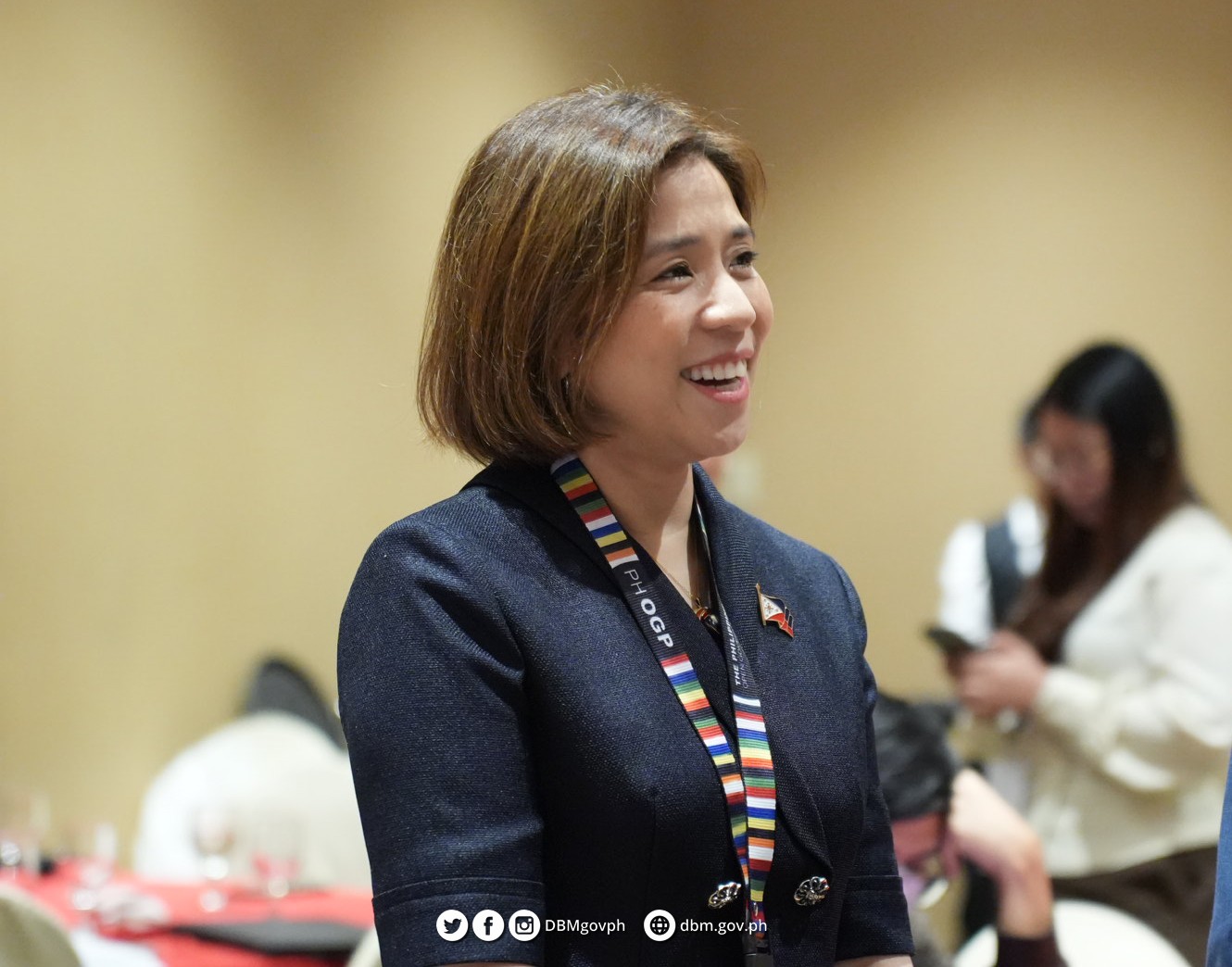
- Details

A pleasant morning to all my fellow advocates of Open Government.
Assalamu alaikum wa Raḥmatullahi wa Barakatuh.
As the chairperson of the Philippine Open Government Partnership or the PH-OGP, I would like to thank all of you for joining us in this planning and development of our 6th PH-OGP National Action Plan.
As you know, we have had a lot of accomplishments since our establishment in 2011. In fact, five (5) national action plans consisting of 65 commitments have already been implemented—a testament to our dedication to this noble cause.
In the process, we are conducting participatory consultations and forging strong multi-sectoral partnerships to ensure that the bureaucracy is working for the people.
To reinforce our efforts and ensure that open government will truly be embedded in the government’s value system, we are also pushing for the institutionalization of the PH-OGP through an Executive Order to improve transparency and citizen participation in policy-making across all government agencies.
All of our achievements took rigorous planning. And in today’s event, before we start our deliberations and exchanges for our 6th National Action Plan, I would like to emphasize the importance of your role as we seek to build a culture of transparency and public participation in governance.
As we strategize for the co-creation of our first medium-term action plan, design engagement strategies for new and relevant government and non-government stakeholders, and discuss how we can move beyond the national action plan in pursuing open government reforms, let us keep in mind the infinite value of strengthened public participation, improvement of government transparency, and cementing accountability in our institutions.
At the same time, let us also take advantage of the tools of today: as we pursue the digital transformation of the bureaucracy, let us incorporate into our plan mechanisms that will facilitate the faster release of information to the public and promote fiscal transparency.
Finally, let us remember that planning is not just at the onset but we must continuously plan and improve until we meet our targets and then set even higher standards for our growth.
Thus, I call on all Open Government advocates to put our hearts and minds into creating our 6th National Action Plan excellently. Let us take this opportunity to help achieve a more Open Government towards our Agenda for Prosperity.
On our end at the Department of Budget and Management, we are proud of our accomplishments on fiscal transparency. We have our Fiscal Openness (FO) Working Group which leads and monitors the country’s performance in the Open Budget Survey (OBS) conducted by the International Budget Partnership. To date, we have maintained our lead in the Southeast Asian region in providing mechanisms that allow the public to participate in the budget process.
We have also been a consistent winner in the Freedom of Information (FOI) Awards since 2017 and last year, we were recognized as one of the top requested and performing agencies in the eFOI Portal.
We have also operationalized the DBM Civil Society Organizations Desk which responds to CSOs’ requests for information and addresses their budget-related queries. And just recently, the Global Initiative for Fiscal Transparency (GIFT) lauded the DBM, a founding member of GIFT, for remaining a prime example of fiscal transparency in Asia regardless of changes in administrations.
Congratulations to all of you who have worked hard on this. We have a lot more accomplishments to share on open governance and fiscal transparency, but we also have a lot more to do so I will not take much of your time. To all our partners and stakeholders, rest assured that we are one with you in planning, executing, monitoring, and evaluating our programs and projects that will bring the Philippines to the forefront of genuine democracy and exceptional public participation marked by multi-sectoral representation and exchanges.
Maraming salamat po sa pagiging bahagi ng ating adhikain para sa ating bansa at bawat Pilipino.
Wabillahi Tawfiq Wal Hidaya, Wasalamu alaikum wa rahmatullahi wa Barakatuhu.
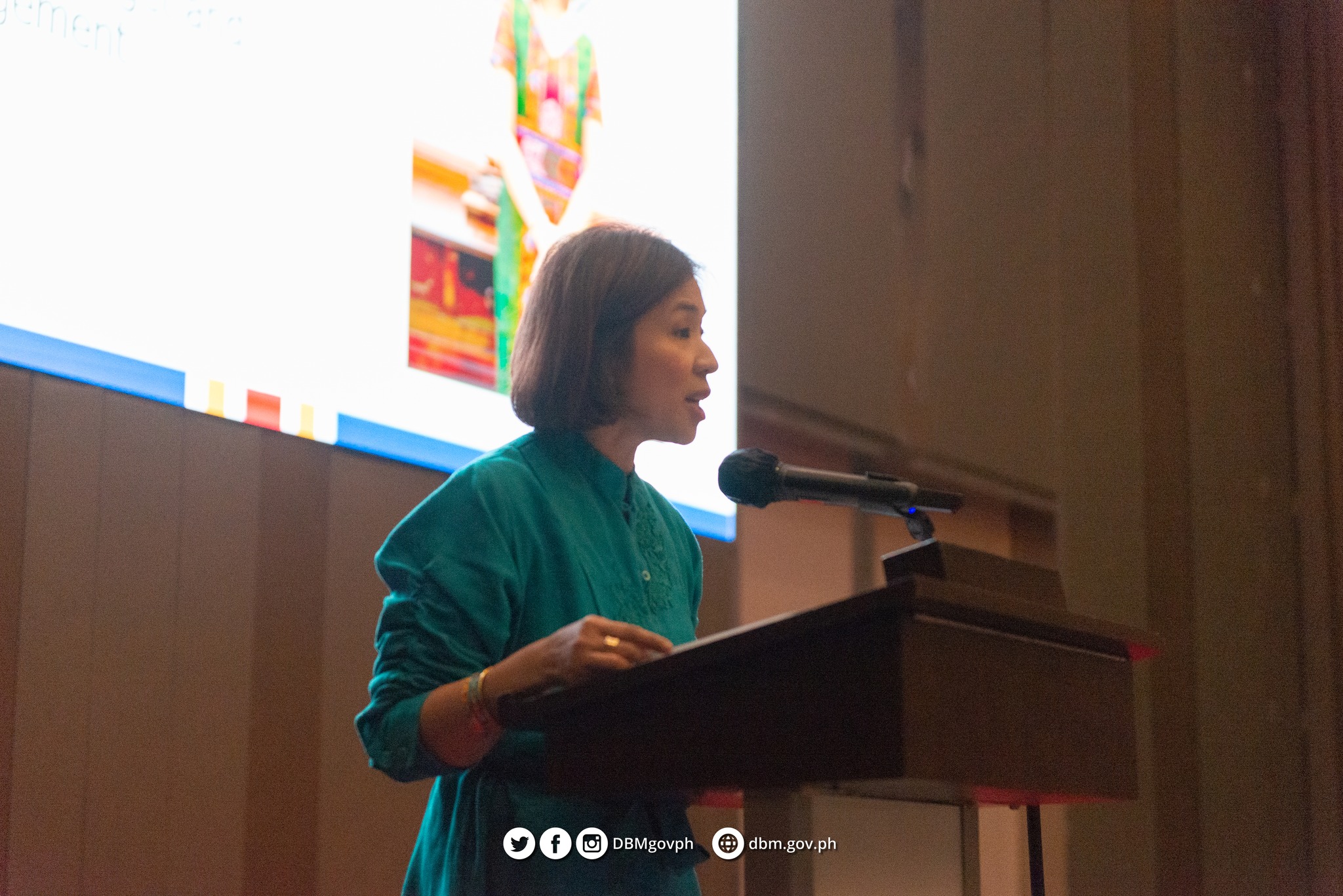
- Details

World Bank Country Director Ndiamé Diop, Operations Manager Achim Fock, Practice Manager for Governance Patricia McKenzie, and Senior Governance Specialist Davit Melikyan; to all officials here and esteemed guests…A pleasant morning to you all.
Assalamu alaikum wa Raḥmatullahi wa Barakatuh.
Before anything else, I would like to personally thank our friends from the World Bank—your work and dedication have such a great impact on our beloved Philippines.
To our fellow government officials and employees from the implementing and oversight agencies, thank you for being our partners in ensuring economic growth and achieving our Agenda for Prosperity.
Incidentally, Mr. Diop and I were just together in Washington, D. C. for the World Bank-IMF Spring Meetings 2023 and at the Philippine Economic Briefing last April 12, we were delighted to hear him share this forecast—and I quote—“Within two years, projection shows that this country will reach above middle-income status. When we get there, the country can look back and be very proud of what was accomplished.”
This optimism—based on data on the sound economic performance and policies of the Philippines—inspires us to do better for our citizens. Thank you for the confidence. We assure you that we will continue to work hard to meet our economic targets.
As you may know, the Philippines' projected real Gross Domestic Product (GDP) for 2023 ranks highest in the ASEAN region according to the latest World Economic Outlook of the International Monetary Fund (IMF). With the real GDP projection raised to 6.0 percent from 5.0 percent in January, the Philippines surpassed other Asian countries, such as Vietnam at 5.8 percent, China at 5.2 percent, and Indonesia at 5 percent.
It is incumbent upon us to ensure that this projection is realized, even exceeded, and so we are here today.
In the past few days, we deepened our understanding of our partnerships on Foreign Assisted Programs (FAPs). Given that it is an important component of our country’s development, it is our responsibility to ensure that we are well-informed of its intricacies, that we are familiar with the steps involved in project implementation and monitoring, and that we are able to craft a report regarding the project.
And this event is just the beginning. The execution phase is the most crucial aspect of FAPs. We hope that through this event, you now have a clearer view of what is ahead of us. It will not be easy because of the weight of the projects including the Bureau of Customs’ Modernization Project, the Digital Infrastructure Project, the Teacher Effectiveness and Competencies Enhancement Project, and the Civil Service Modernization, among others. But as we see these projects come to life, it will certainly be fulfilling.
As we synergize our capabilities, we can accomplish even more.
In order to fully maximize our partnerships, we need to be aligned. And so let us streamline our efforts and engage in clear communication with the oversight agencies, namely, the Office of the President, the Department of Finance, the Bangko Sentral ng Pilipinas, the National Economic and Development Authority, the Bureau of the Treasury, the Commission on Audit, and of course, the Department of Budget and Management.
On our end at DBM, rest assured that we are always ready and committed to ensuring a stronger and smoother implementation of FAPs in the government. Through our Advocacy, Communications, and Training Service (ACTS), we will also launch a microsite that will serve as a repository of FAPs-related materials for the benefit of implementing and oversight agencies, as well as our partners and stakeholders.
I look forward to all of us working together in pursuit of economic transformation towards inclusivity and sustainability. May our programs uplift the quality of life at the grassroots level. May we always persist in public service, keeping in mind that everything we do—big or small—is for the Filipino people.
Once again, let me thank the World Bank for being a consistent and generous partner of the Philippine Government. We are one with you in working for both national and global development to ensure the welfare of every individual regardless of race, age, gender, and socioeconomic standing.
Now, let us all work hard and work together towards the Philippines reaching above middle-income status in two years, as projected by the World Bank itself. And may we see the positive fruition of our learning and implementation in the lives of every Filipino.
Thank you. Wabillahi Tawfiq Wal Hidaya, Wasalamu alaikum wa rahmatullahi wa Barakatuhu.
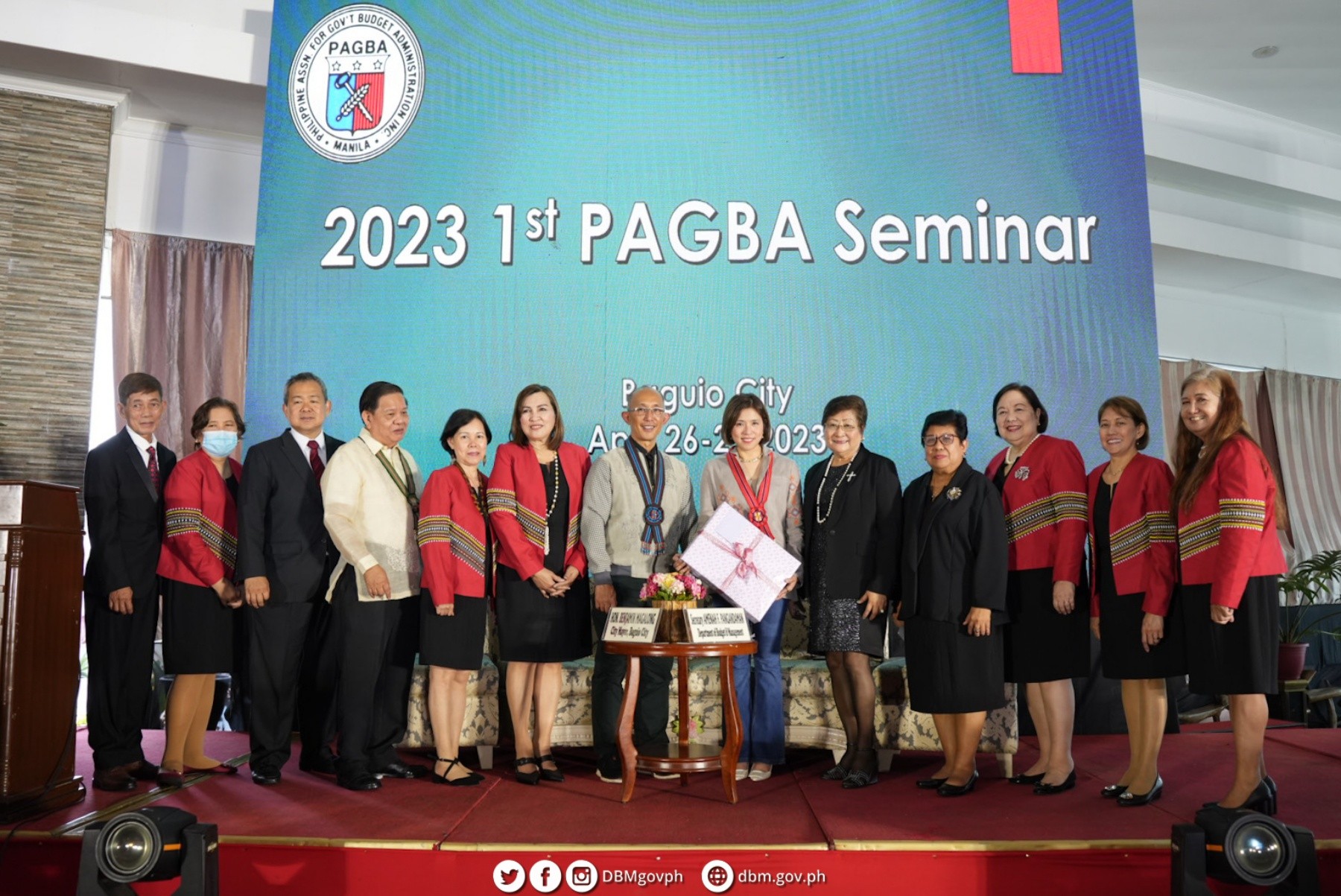
- Details

Thank you… It is an opportune time for me to also thank [former DBM Undersecretary for Budget Preparation and Execution Group] Usec. Luz Cantor. Galing po ako sa legislative department ng gobyerno. I served po under the office of the late Senator Edgardo J. Angara for 12 years. And then, I was also lucky enough to work for a short time with Senator Loren Legarda when she was Chairman of Finance Committee in the Senate. ‘Yun po ‘yung time na nakatrabaho ko rin po si Secretary [Benjamin] Diokno, private citizen po siya ‘non. And then, naging Secretary...
I am a young student. I call myself a student during that time because when I entered DBM po, I know the budget process a bit because si Senator Angara po ay naging Chairman ng Committee on Finance. Si Senator Legarda rin po.
But, iba po sa Executive. Iba po ang work sa executive. Sila po, sina Usec. Cantor at ‘yung iba pong senior officials ng DBM, sila po actually ang nagturo sa akin on how to go about budgeting, procurement, and auditing, pati sa Human Resource na rin po, so salamat po. Kung hindi po dahil sa kanila, siguro po hindi po tayo magiging Secretary at hindi po ako naririto sa harap ninyo at nagsasalita. Maraming salamat, Ma’am.
Of course, sa atin pong masigasig at napakaguwapong Mayor, Mayor Benjie Magalong, sa ating napakataas ang energy na Presidente ng PAGBA—hanggang Sabado po siguro masaya ang inyong workshop dahil masaya po ang ating presidente—si Ma’am Zenaida po, magandang umaga po. Sa lahat ng officers ng PAGBA and members; my colleagues from the Department of Budget and Management (DBM); and my fellow civil servants and public fiscal practitioners from national government agencies, GOCCs, state colleges and universities, and local government units nationwide, good day.
Assalamu alaikum wa Raḥmatullahi wa Barakatuh.
First, I would like to congratulate PAGBA for the success of this event. I am delighted that you have invited the best and the brightest from the Department to serve as your resource persons. I am confident that Acting Assistant Secretary Mary Ann Dela Vega, Director Gerald Janda, Director Ma. Cecilia Narido, and Executive Director Dennis Santiago will impart useful information to our dear participants.
Allow me to also greet you a happy 58th anniversary, as well, as I was informed that it was this April. Interestingly, we also celebrated our 87th founding anniversary yesterday. As such, I wish you the best as you continue bringing about significant changes in budget administration in the years to come.
I would also like to commend you for choosing to discuss today not just the challenges in implementing innovations and technologies to Public Financial Management or PFM, but more importantly, the ways to respond to these challenges.
As government budget administrators, it is important that we do not just dwell on the problems we face, rather, we must focus on being proactive in crafting solutions. As shared by Steven Covey, the author of the popular book, “The 7 Habits of Highly Effective People,” the first and most fundamental habit of an effective person is to be proactive. This entails awareness of the areas where we spend our energies, and acknowledgment that we are “response-able.” I believe the same could and should be applied in government processes, including citizen participation in public budgeting.
Being proactive is crucial in “Responding to the Continuing Challenges of Innovations and Technology to Public Financial Management.” As such, it is incumbent upon us to build our capacities for proactive governance as we tread an increasingly competitive, volatile, and innovation-driven world.
Proactive governance is best embodied in the country’s Philippine Development Plan (PDP) 2023 to 2028, anchored on the Administration’s 8-point Socioeconomic Agenda. The PDP considered the lessons learned from the pandemic—built on tried and tested strategies—and recognized emerging global and regional trends to reinvigorate job creation and accelerate poverty reduction.
In line with the PDP and the 8-point Socioeconomic Agenda, we embraced proactive governance in the 2023 National Budget. Amounting to Php 5.268 trillion, it prioritizes digital transformation and e-governance. The end-goal is to improve awareness, responsiveness, and performance while fighting corruption and deepening stakeholder participation and transparency in our systems and processes.
To implement these e-governance innovations, we have allocated a total of Php 24.13 billion for ICT-related expenditures this year.At the local level, a portion of the Php 7.24 billion financial assistance for Local Government Units (LGUs) can also be used for local ICT systems and infrastructure development.
As for updates on the initiatives of the Department, my colleagues will discuss them with you in detail but please allow me to share a few of them.
In anticipation of the challenges that our partners in the local governments will face in the implementation of the government’s budget and digitalization initiatives, the DBM has been continuously providing Competency Program classes which capacitate PFM practitioners across different regions, including the Bangsamoro Autonomous Region in Muslim Mindanao (BARMM).
The Department is also gearing up for the launch of its Digital Transformation Roadmap which aims to promote data governance and digitalization in fiscal-related government processes. This roadmap has a dual transformation feature which will future-proof the entire bureaucracy by institutionalizing all the digital reforms spearheaded by the DBM.
We believe that proactivity fosters progress and innovation; thus, we have been proactively lobbying and working with Congress toward the enactment of the Progressive Budgeting for Better and Modernized Governance or the PBBM Governance Bill, which will modernize our budgeting system; resolve the fragmented PFM legal framework; secure institutionalization of key PFM reforms such as the Treasury Single Account, Accounting and Auditing Reforms, and the Integrated Financial Management Information System; strengthen the implementation of the Cash Budgeting System; and promote public participation in the budget process once enacted.
As I have noted, these are only a few of the initiatives that we have in the Department and rest assured that we are continuously working for the betterment of our PFM system.
So, we hope that you will join us in these undertakings. To all our PFM practitioners, thank you for your commitment and dedication to serve the people. Let us proactively work toward the achievement of our Agenda for Prosperity—one that is truly inclusive and sustainable for all generations and the next. Remember, a country with proactive citizens is a country on its way to progress.
Maraming salamat po. Mabuhay ang PAGBA at ang ating PFM practitioners. Wabillahi Tawfiq Wal Hidaya, Wasalamu alaikum wa rahmatullahi wa Barakatuhu.
